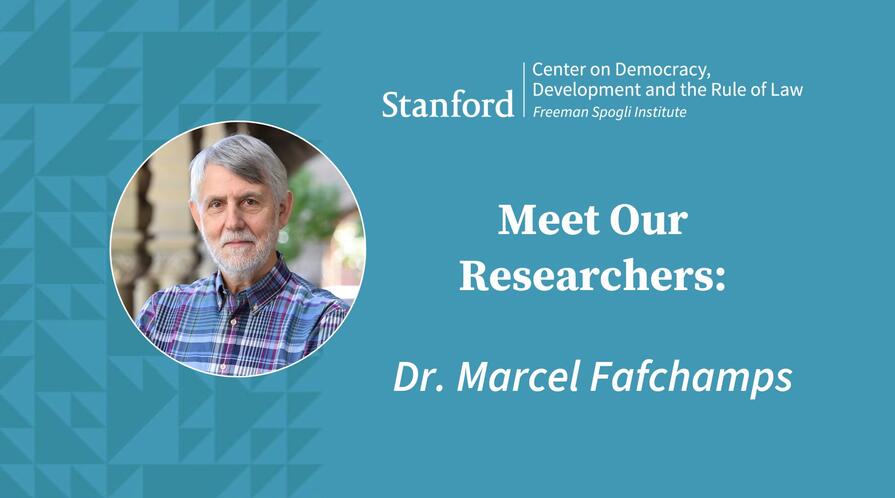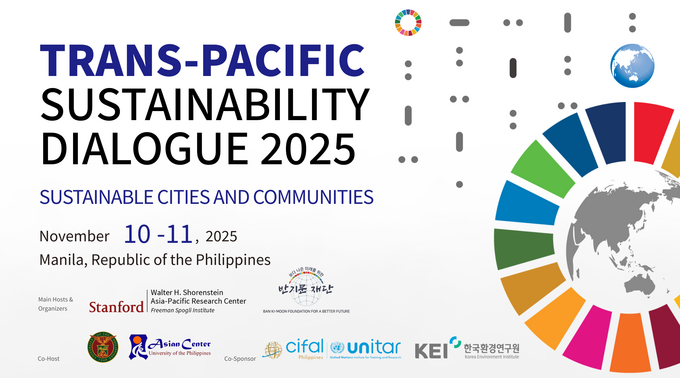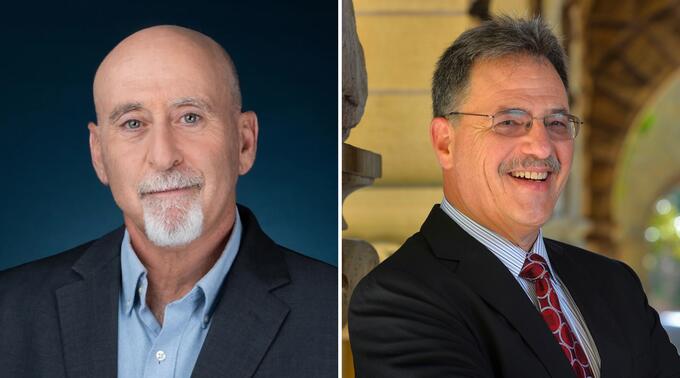Meet Our Researchers: Dr. Marcel Fafchamps
The "Meet Our Researchers" series showcases the incredible scholars at Stanford’s Center on Democracy, Development and the Rule of Law (CDDRL). Through engaging interviews conducted by our undergraduate research assistants, we explore the journeys, passions, and insights of CDDRL’s faculty and researchers.
Marcel Fafchamps is a Senior Fellow Emeritus at the Freeman Spogli Institute for International Studies (FSI) and a faculty member at the Center on Democracy, Development and the Rule of Law. Previously, he was the Satre Family Senior Fellow at FSI. He is also a Professor (by courtesy) in the Department of Economics, and his research focuses on economic development, market institutions, social networks, and behavioral economics, with a regional emphasis on Africa and South Asia. Before joining Stanford, Dr. Fafchamps served as a professor at Oxford University and spent several years in Ethiopia working with the International Labour Organization.
What inspired you to pursue research in your current field, and how did your journey lead you to CDDRL?
My choice of research field was actually somewhat serendipitous. I wasn’t initially interested in development; I was drawn to human behavior, but not development specifically. After finishing my undergraduate studies, I went to Ethiopia for what was meant to be just one year and ended up staying nearly five. Being there completely changed my direction. As a young graduate, I suddenly had a lot of freedom. I carried out individual research, traveled on missions to several African countries, observed institutions, asked questions, and produced studies. That experience made me much more interested in international issues.
I spent the first ten years of my career at Stanford before moving to Oxford University, which had a strong research community in this field. Eventually, I decided to return, and by the time I came back in 2013, Stanford had developed a vibrant and dynamic community in this area.
What is the most exciting or impactful finding from your research, and why do you think it matters for democracy, development, or the rule of law?
I haven’t pursued research with the aim of having a specific policy impact. I’ve always been more interested in understanding behavior — why people act the way they do — rather than focusing on whether a particular intervention changes outcomes. Without understanding the underlying mechanism, it’s hard to know whether a result will carry over to another context.
My citations, about 33,500, are spread across a wide range of papers rather than concentrated in one or two major hits. If I had to choose the work I’m proudest of, it would be the book I wrote on market institutions in the early 2000s. Many of my papers have also been influential.
What have been some of the most challenging aspects of conducting research in this field, and how did you overcome these challenges?
Early on, one of the major challenges was finding a place with the right kind of support: interested colleagues, staff who could assist with fieldwork, and, especially, a community of graduate students interested in similar questions. That kind of environment takes time to build. Oxford had a very strong community with a lot of support, funding, and students working in this area. When I later returned to Stanford, we hired younger development economists and were able to build a similarly vibrant student community working on different aspects of behavior and development.
How do you see your research influencing policy or contributing to real-world change?
Mostly through understanding behavior and what lies behind different types of decisions. That’s what matters. In addition, the direct policy impact has largely come through my students. Many have gone into academia, but many others have joined organizations like the World Bank, the IMF, or private companies. One student, for example, helped set up a commodity exchange in Ethiopia, which certainly had policy impact. So my influence on policy has been felt primarily through the work that my students go on to do.
How have things changed in your field since you first began your research, and how has this influenced the way you approach your work?
Research methodologies have evolved significantly over time. In the early days, researchers did not even use surveys. Later, surveys became more rigorous, and the field moved toward panel data to follow households over longer periods. With the introduction of GPS, it became possible to work with spatial data in new and more precise ways. The emergence of randomized controlled trials marked another major shift and shaped development economics for many years, although that influence is now starting to decline. Conceptually, the growing importance of behavioral economics has also been a major change and has become increasingly central to how we study issues in economic development.
What gaps do you feel need to be addressed in your research field, and what do you anticipate you will study more in the future?
There are always gaps. It never is a finished business. The challenges also change over time. Recently, in a very short period, many things built over our lifetimes have been undone. The question is whether to try to rebuild them or conclude that they did not work and try something else. I do not think many of the solutions being proposed now will last; they are not effective. The erosion of the rule of law is especially disturbing. Even democracies struggle with it, but in this country, it has essentially gone out the window. The neglect of international law is also profoundly shocking.
Could you elaborate on the broader shifts you’ve observed in recent years, especially the weakening of institutions and systems that once supported development and international cooperation?
Closing down USAID is a massive change. Development institutions could certainly be improved, but shutting them down entirely is something very different. These shifts have also affected research funding. Funding has dwindled, and academic positions in development have declined. The job market in development economics overall seems to be shrinking. There is also less interest in people who study democracy, because their work would necessarily be critical of what is happening. It has been a significant backward step.
In times of uncertainty, what gives you hope for the future of your field?
My students! Their enthusiasm has not disappeared, and the enthusiasm among researchers remains strong as well. Our international contacts remain solid, and parts of the world, especially in Europe, such as Germany and Switzerland, have not given up on these ideals. For example, Esther Duflo recently moved from MIT to Zurich, and we may see more moves like that.
Lastly, what book would you recommend for students interested in a research career in your field?
Development economics now covers everything; it’s essentially all economics for 80 percent of the world, so there isn’t one book that summarizes it. If someone wants to start a research career focused on market institutions, I would recommend the book I wrote on that topic: Market Institutions in Sub-Saharan Africa: Theory and Evidence (MIT Press, 2003). But if I had to pick a book I personally enjoyed, it would be the historian Fernand Braudel's three-volume Civilization and Capitalism, which looks at market institutions across the world from 1400 to 1800. It was eye-opening and a lot more interesting than traditional, battle-focused history.
As he approaches retirement at the end of 2025, Dr. Fafchamps offers insights drawn from decades of research on behavior and institutions. His legacy endures through his students and the body of research that continues to shape scholarship worldwide.
On November 14, 2025, CDDRL and the King Center on Global Development hosted "Unfinished Business: A Tribute to Marcel Fafchamps" — a full-day academic symposium celebrating the career and contributions of economist Marcel Fafchamps on the occasion of his retirement. Featuring a keynote by Marcel himself, this tribute brought together colleagues, collaborators, and students to engage with the themes and ideas that have shaped his influential work in development economics, labor markets, and social networks.
Marcel's keynote on "Behavioral Markets" can be viewed below:
Read More

A conversation with Marcel Fafchamps as he reflects on the insights, challenges, and evolving institutions that have shaped his decades in development research.






























































































